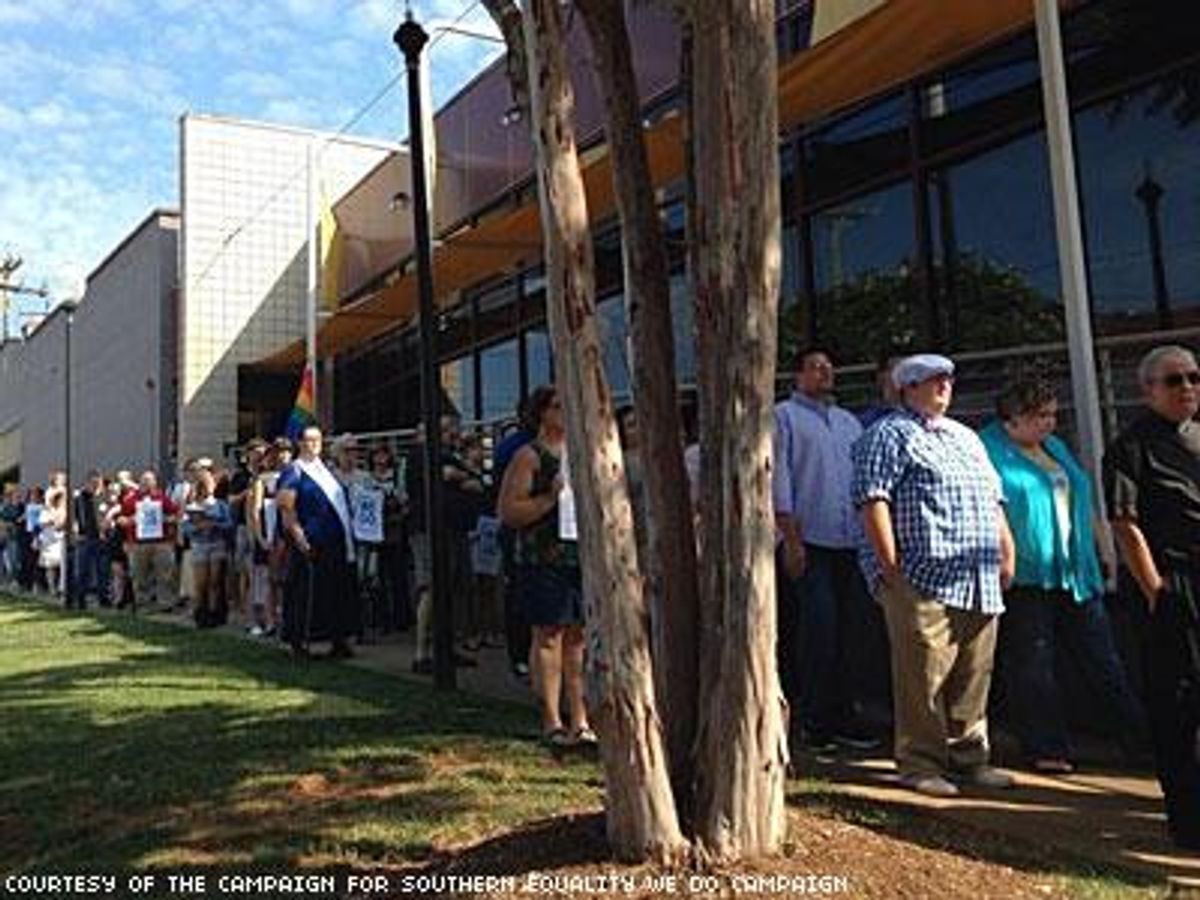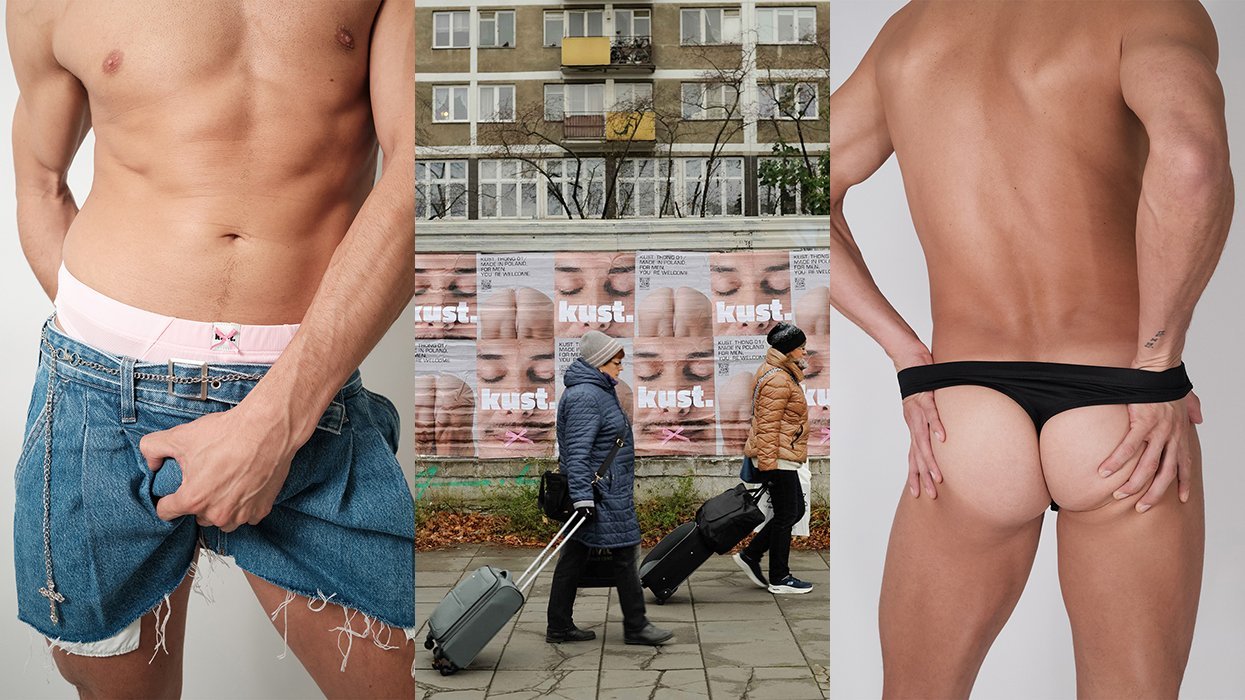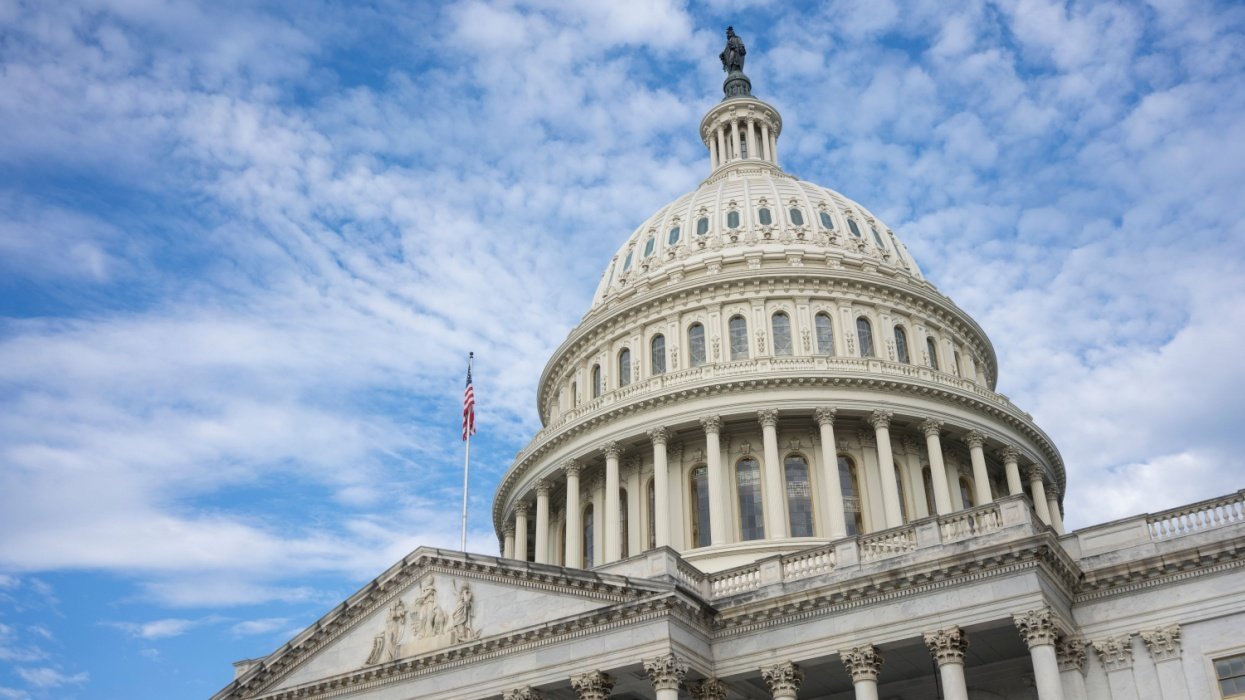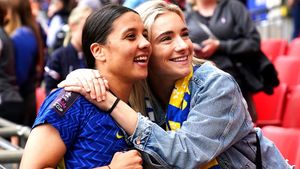All Rights reserved
By continuing to use our site, you agree to our Private Policy and Terms of Use.
On Monday, the 4th Circuit Court of Appeals issued a ruling that paves the way to marriage equality in South Carolina.
On Wednesday morning, I walked into the Probate Court office in Greenville, S.C., and applied for a marriage license with my fiancee Misha. This will mark the fourth time Misha and I have applied for a marriage license with the WE DO Campaign. Each time we have been denied.
So why keep going back to the counter?
For me, the story starts back in Piedmont, a small town on the outskirts of Greenville, S.C., where I grew up and where my family runs an RV park. When I was a child I never thought about the day I would get married, because I knew it would never be an option for me. I knew that I liked girls, and I had been told I was a girl my whole life. I never really felt like a girl though. I didn't know there was a word for what made me different until much later in life, and I was scared to share that with anyone because of the conservative Southern heritage I grew up in.
My parents had friends that were gay, but we also attended a very conservative church where homosexuality was frequently preached against. When I finally came out to my family, reparative therapy was offered as the solution. Because of this, I left home at 16, dropping out of high school, finishing with an adult education diploma, and later going on to college.
For years, "lesbian" was the term I used to describe myself. But it never really felt totally honest. I'm still attracted to women, or at least this one woman, Misha, who stole my heart. But, I'm not in a same gender loving relationship, even though our drivers licenses both have an F on them. I was assigned the sex of female at birth, but at some point my body started producing more testosterone than most female-bodied folks.
Depending on where you draw the arbitrary line on sex, that could label me as an intersex person. I identify as genderqueer (an umbrella term for people who identify outside the gender binary). I prefer gender neutral pronouns and restrooms. I don't fit in any gender box. I prefer sir to ma'am, but I have no desire to change my body.
If I did have that desire, I could start hormones and then change the gender marker on my drivers license to male. After that process, Misha and I could walk up to the marriage license counter and be granted a license. But that's just another box that doesn't fit.
People tell me to quit making it so hard on myself by being different. But I know what it's like to be in the depths of darkness from trying to make myself fit into a box that I just don't belong in. Part of my journey is about living outside the box. I am genderqueer. It's just who I am.
Years after leaving home at 16, I returned and I now help run the RV park that is my family's business. Misha also works for her family's business as she completes her Masters in Social Work. Piedmont is where our family and friends are -- it's home.
Day to day, our relationship doesn't look that different from a lot of our friends' relationships. We divide household chores, and she gets upset when I leave my socks on the floor. I like to put the cups in the cabinet upside down while she likes to put them in right-side up. I think big picture and she keeps me grounded. Misha is the love of my life, my rock. She stood by my side in my hardest times, and I've stood by hers.
Being LGBT* is not always an easy path to walk here in South Carolina. It's still illegal to talk about homosexuality in the schools. You can be fired for being LGBT*. Back in 2006, South Carolina wrote discrimination into its state constitution with Amendment One, which states that marriage is a relationship between one man and one woman. This is not only hurtful because it invalidates my relationship with my partner, but it's also hurtful because it is yet again writing the gender binary into the fabric of our laws.
Misha and I are proud to call South Carolina home, and our solution to the discrimination and stigma we face each day is to step up and help change it. That's why in 2011, we became co-founders of GenderBenders, a grassroots group that focuses on transgender and genderqueer issues and now has more than 300 members across Upstate South Carolina. The majority of our members, who span the ages of 14 to 50, are lower-income or working class folks. Our work includes social support, advocacy and activism and involves working across issues that impact the LGBT* community -- from employment rights, to suicide prevention, to racial equity, to marriage equality.
Two weeks ago, we led Camp GenderBenders, which brought together more than 50 of our members for four days of community, fellowship, training on how to pass equality measures locally and on college campuses, and free legal clinics on topics like name changes. Camp GB is about equipping LGBT* people in South Carolina with the support and skills to be leaders every day as we seek both legal and lived equality.
Last weekend, I was honored to speak on behalf of the GenderBenders at a Unity Rally to counter a KKK rally being held across town. As I scanned the standing-room-only crowd of more than 400-strong, I saw a community of people who were multi-racial, LGBT* and straight, representative of many faith traditions, poor, middle class, and wealthy, standing together to call for equality and justice for all. In that room, I saw a South Carolina that I'm proud to call home.
And this Wednesday, GenderBenders led another WE DO Campaign action in Greenville. Some of us will request marriage licenses, some of us will be peacekeepers, some will be spport team members. The last time we were at that counter, a woman in line launched into an antigay religious rant when she realized why Misha and I were there. In that moment, I fought the impulse to get into a debate with her and instead focused on what mattered -- staying connected to Misha, expressing love in the face of discrimination.
Sometimes I am asked by others in the LGBT* movement why I work on marriage equality. Sometimes, I am told point blank that, as a genderqueer person, marriage should not be a priority for me personally or in my advocacy efforts. Those people view marriage as being at odds with the priorities of the T and Q communities.
But that analysis just doesn't hold in my life. My compass is the truth I see on the ground, in my own life and the lives of others in my community. In the South, we don't -- and we cannot afford to -- have a siloed analysis of LGBT advocacy, separating issues and identities. Instead, we have to have each other's backs. We work on marriage because there are LGBT* families in the South who need the protections of legal marriage, and, with the same sense of urgency, we work on transgender advocacy, employment equality, and racial equity issues. Our advocacy models are stronger when they reflect this level of integration.
That's one more reason why we will keep walking up to that marriage license counter and continue calling for full equality on for all LGBT* people until they say yes. We apply for all of the LGBT* youth who are looking for the strength to be themselves. We apply, because we believe that everyone's hearts and minds can change around these issues once they see how human we actually are. But most importantly, we apply because we love each other, and want to spend the rest of our lives together.
IVY HILL is a co-founder and the program director of Gender Benders, a grassroots social justice and support group working on trans* issues. Ze lives in the small town of Piedmont, South Carolina with hir fiance Misha. Ivy is also proud to serve on the advisory board for the Campaign for Southern Equality, and South Carolina Equality's TransAction committee.

















































































